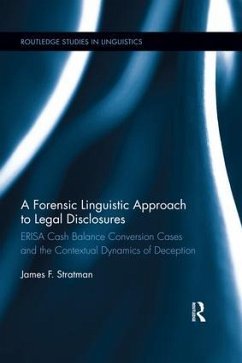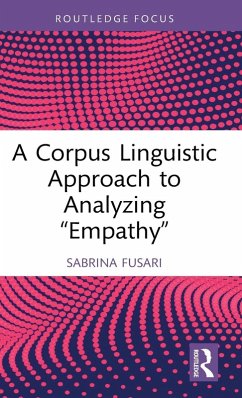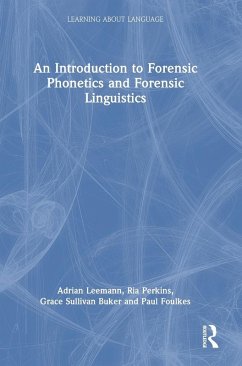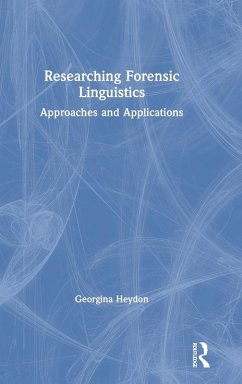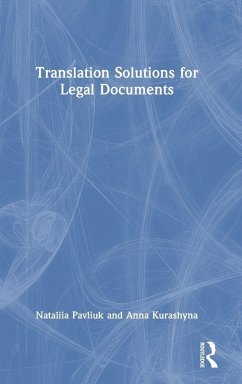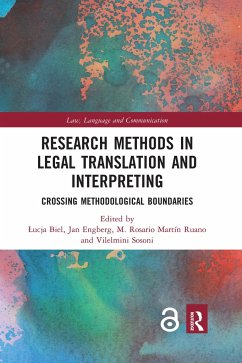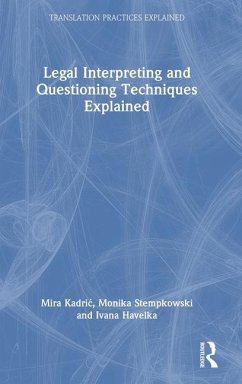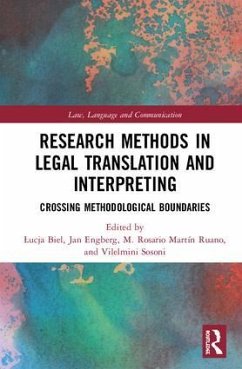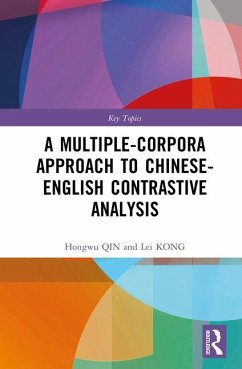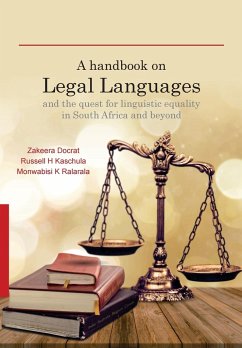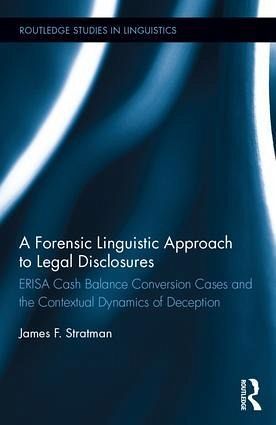
A Forensic Linguistic Approach to Legal Disclosures
ERISA Cash Balance Conversion Cases and the Contextual Dynamics of Deception
Versandkostenfrei!
Versandfertig in 1-2 Wochen
176,99 €
inkl. MwSt.
Weitere Ausgaben:

PAYBACK Punkte
88 °P sammeln!
This book is a scholarly work of forensic linguistics that demonstrates how the principles of Gricean pragmatics and their recent elaboration in Information Manipulation Theory (IMT) can be of use to courts faced with deciding cases of allegedly fraudulent disclosure documents. Stratman seeks to enrich current explications of the rhetorical "workings" of deceptive disclosures within the broader Gricean tradition of pragmatics, and in so doing contributes to the larger dual mission of the field of forensic linguistics, which is both to understand and to improve courts' impact on social justice.





